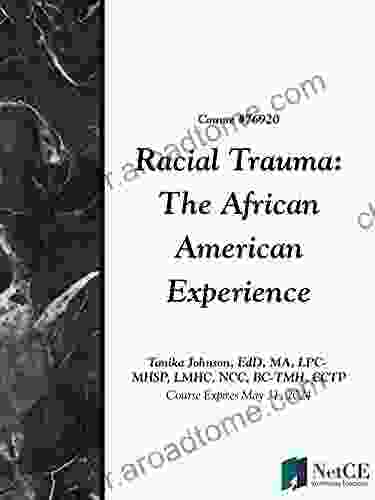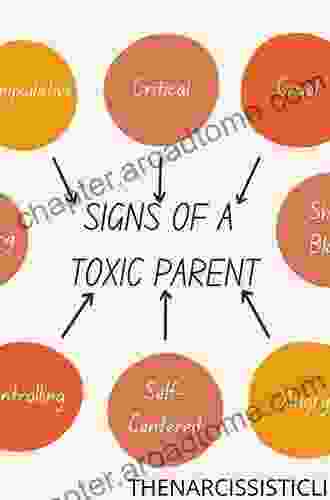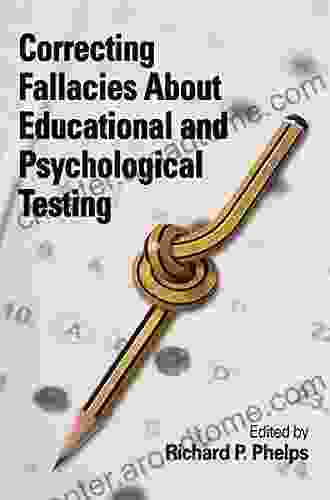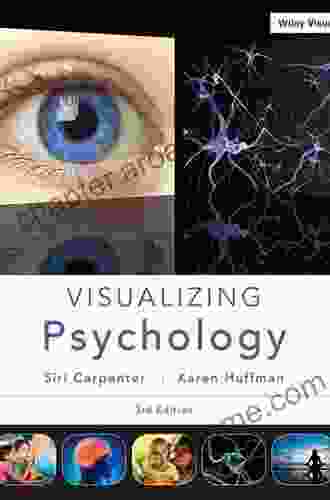Dispelling the Myths and Embracing the Truths: Correcting Fallacies About Educational and Psychological Testing

Educational and psychological testing have garnered immense importance in various domains, assisting in decision-making, identifying areas of strength and weakness, and informing educational and therapeutic interventions. However, these valuable tools have often been shrouded in a veil of misconceptions and fallacies that impede their effective utilization.
5 out of 5
| Language | : | English |
| File size | : | 2471 KB |
| Text-to-Speech | : | Enabled |
| Screen Reader | : | Supported |
| Enhanced typesetting | : | Enabled |
| Word Wise | : | Enabled |
| Print length | : | 287 pages |
In this comprehensive guide, we aim to shed light on the most prevalent misconceptions surrounding educational and psychological testing, providing evidence-based counterarguments and emphasizing the crucial role these assessments play in fostering informed decision-making.
Fallacy 1: Educational and Psychological Tests are Inherently Biased
This fallacy stems from the assumption that tests are designed to favor certain groups or individuals over others. While it is true that all tests possess some degree of bias, it is crucial to note that standardized tests are meticulously developed and validated to minimize bias and ensure fairness.
Counterargument: Extensive research has demonstrated that standardized tests exhibit minimal bias when administered and interpreted appropriately. These tests are subjected to rigorous statistical analyses to identify and address potential sources of bias, ensuring that they are fair and equitable for all test-takers.
Fallacy 2: Educational and Psychological Tests are Not Reliable
Reliability refers to the consistency of test scores. A test is considered reliable if it yields similar results when administered multiple times to the same individuals under similar conditions.
Counterargument: Standardized tests are designed with rigorous psychometric procedures to ensure high levels of reliability. They are administered under standardized conditions, and their scoring is objective and consistent, minimizing the influence of external factors and ensuring that the results accurately reflect the individuals' abilities or characteristics.
Fallacy 3: Educational and Psychological Tests are Invalid
Validity refers to the extent to which a test measures what it purports to measure. Fallacious claims of invalidity often arise from misinterpretations of test results or a lack of understanding of the test's purpose.
Counterargument: Standardized tests undergo extensive validation studies to ensure that they accurately measure the intended constructs. These studies involve comparing test scores with other measures of the same construct, such as teacher evaluations or clinical observations, and demonstrating strong correlations, supporting the validity of the tests.
Fallacy 4: Educational and Psychological Tests Label Students and Limit Their Potential
This fallacy perpetuates the misconception that tests create fixed categories and limit individuals' opportunities. However, the primary purpose of educational and psychological testing is not to label but to provide valuable information that can inform educational and therapeutic interventions.
Counterargument: Test results are not static or absolute; they provide a snapshot of an individual's abilities or characteristics at a specific point in time. These results can be used to identify areas where additional support or intervention may be beneficial, ultimately enhancing an individual's potential for growth and success.
Fallacy 5: Educational and Psychological Tests are Unnecessary and Should be Abolished
The final fallacy we address is the notion that educational and psychological tests are unnecessary and should be abolished. This extreme viewpoint fails to recognize the valuable role these assessments play in decision-making and improving outcomes.
Counterargument: Educational and psychological tests provide essential data that can inform educational placements, diagnose learning disabilities, and guide therapeutic interventions. By providing a comprehensive understanding of an individual's abilities, strengths, and areas for improvement, these assessments contribute to tailored and effective interventions, ultimately benefiting students and clients.
Dispelling the fallacies surrounding educational and psychological testing is crucial for promoting informed decision-making and maximizing the benefits these assessments offer. By understanding the evidence-based counterarguments and embracing the critical role of testing, we can harness their power to foster educational excellence, enhance well-being, and empower individuals to achieve their full potential.
5 out of 5
| Language | : | English |
| File size | : | 2471 KB |
| Text-to-Speech | : | Enabled |
| Screen Reader | : | Supported |
| Enhanced typesetting | : | Enabled |
| Word Wise | : | Enabled |
| Print length | : | 287 pages |
Do you want to contribute by writing guest posts on this blog?
Please contact us and send us a resume of previous articles that you have written.
 Book
Book Novel
Novel Page
Page Chapter
Chapter Text
Text Story
Story Genre
Genre Reader
Reader Library
Library Paperback
Paperback E-book
E-book Magazine
Magazine Newspaper
Newspaper Paragraph
Paragraph Sentence
Sentence Bookmark
Bookmark Shelf
Shelf Glossary
Glossary Bibliography
Bibliography Foreword
Foreword Preface
Preface Synopsis
Synopsis Annotation
Annotation Footnote
Footnote Manuscript
Manuscript Scroll
Scroll Codex
Codex Tome
Tome Bestseller
Bestseller Classics
Classics Library card
Library card Narrative
Narrative Biography
Biography Autobiography
Autobiography Memoir
Memoir Reference
Reference Encyclopedia
Encyclopedia Sherri Lynn Wood
Sherri Lynn Wood Shannon Stewart
Shannon Stewart Michael Endwell
Michael Endwell Patricia Crowther
Patricia Crowther Timothy Orwig
Timothy Orwig Mildred L Patten
Mildred L Patten Nils Petter Gleditsch
Nils Petter Gleditsch Myquillyn Smith
Myquillyn Smith Mike Ellis
Mike Ellis Michael Boylan
Michael Boylan Nicholas Hyde
Nicholas Hyde Michael Camille
Michael Camille Publius
Publius Suzette Haden Elgin
Suzette Haden Elgin Michelle Mckinney Hammond
Michelle Mckinney Hammond Robert Sherrod
Robert Sherrod Nick Vandome
Nick Vandome Viktor Farcic
Viktor Farcic Nathan Nyquist
Nathan Nyquist Rachel Attebery
Rachel Attebery
Light bulbAdvertise smarter! Our strategic ad space ensures maximum exposure. Reserve your spot today!

 Robert ReedThe Inside Story of the Honda Scandal: A Riveting Account of Corporate Greed...
Robert ReedThe Inside Story of the Honda Scandal: A Riveting Account of Corporate Greed... Leon FosterFollow ·18.4k
Leon FosterFollow ·18.4k Bryan GrayFollow ·9.9k
Bryan GrayFollow ·9.9k Gus HayesFollow ·8.3k
Gus HayesFollow ·8.3k Elliott CarterFollow ·13.6k
Elliott CarterFollow ·13.6k Corey HayesFollow ·5.2k
Corey HayesFollow ·5.2k Billy FosterFollow ·17k
Billy FosterFollow ·17k Terence NelsonFollow ·5.7k
Terence NelsonFollow ·5.7k Alex ReedFollow ·7k
Alex ReedFollow ·7k

 Samuel Beckett
Samuel BeckettPortrait of the Plague Doctor: A Chilling Tale of Fear...
Prologue: A...

 Elliott Carter
Elliott CarterTrends in Modeling and Simulation Studies in...
Unveiling the Convergence of...

 Natsume Sōseki
Natsume SōsekiCells For Kids: Science For Children
Unlock the Microscopic...

 Anthony Wells
Anthony WellsUnlock the Power of Understanding: Embrace the African...
Embark on a Journey of Truth,...

 Forrest Reed
Forrest ReedBreaking Free: Healing from Toxic Relationships Between...
Are you struggling...
5 out of 5
| Language | : | English |
| File size | : | 2471 KB |
| Text-to-Speech | : | Enabled |
| Screen Reader | : | Supported |
| Enhanced typesetting | : | Enabled |
| Word Wise | : | Enabled |
| Print length | : | 287 pages |












